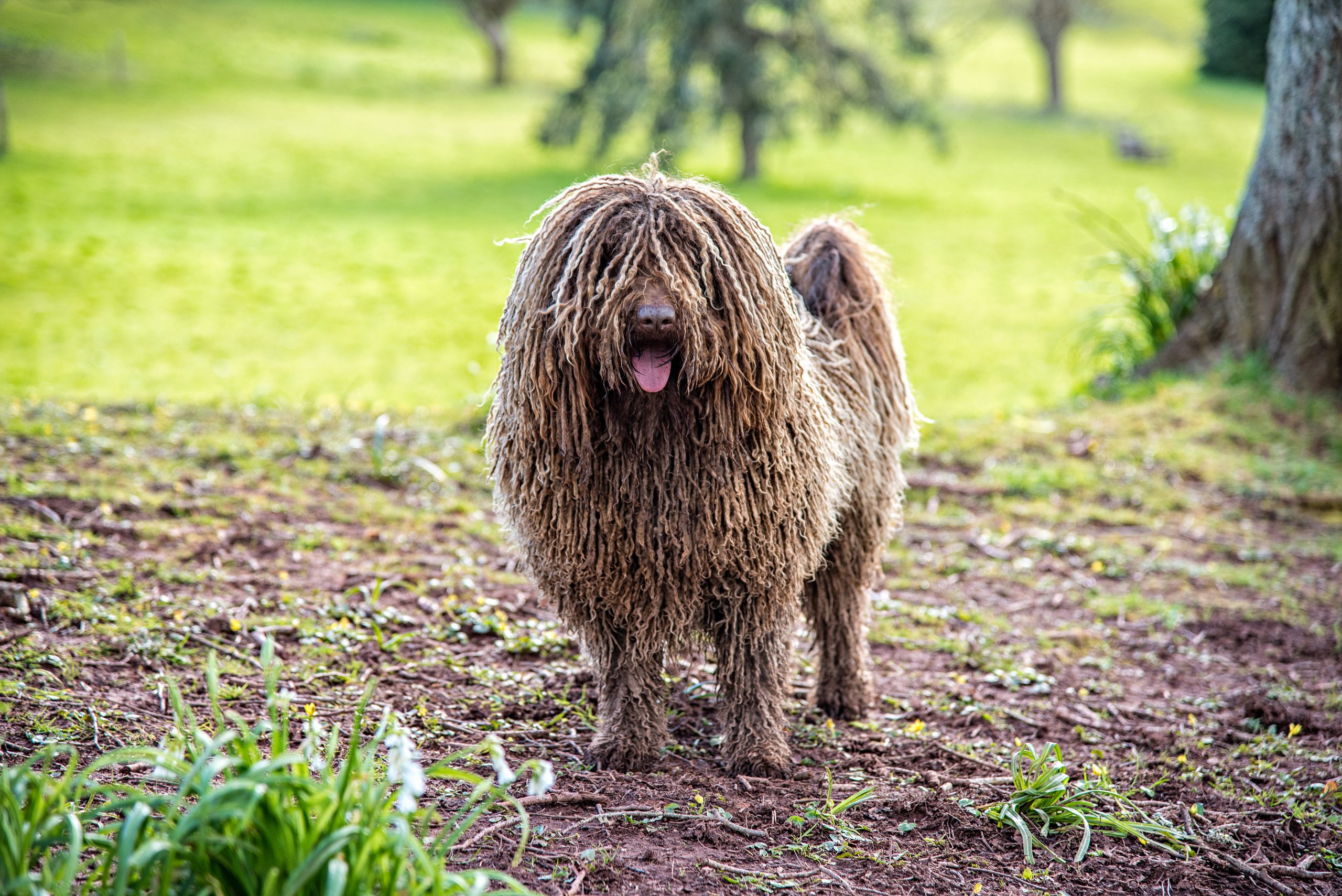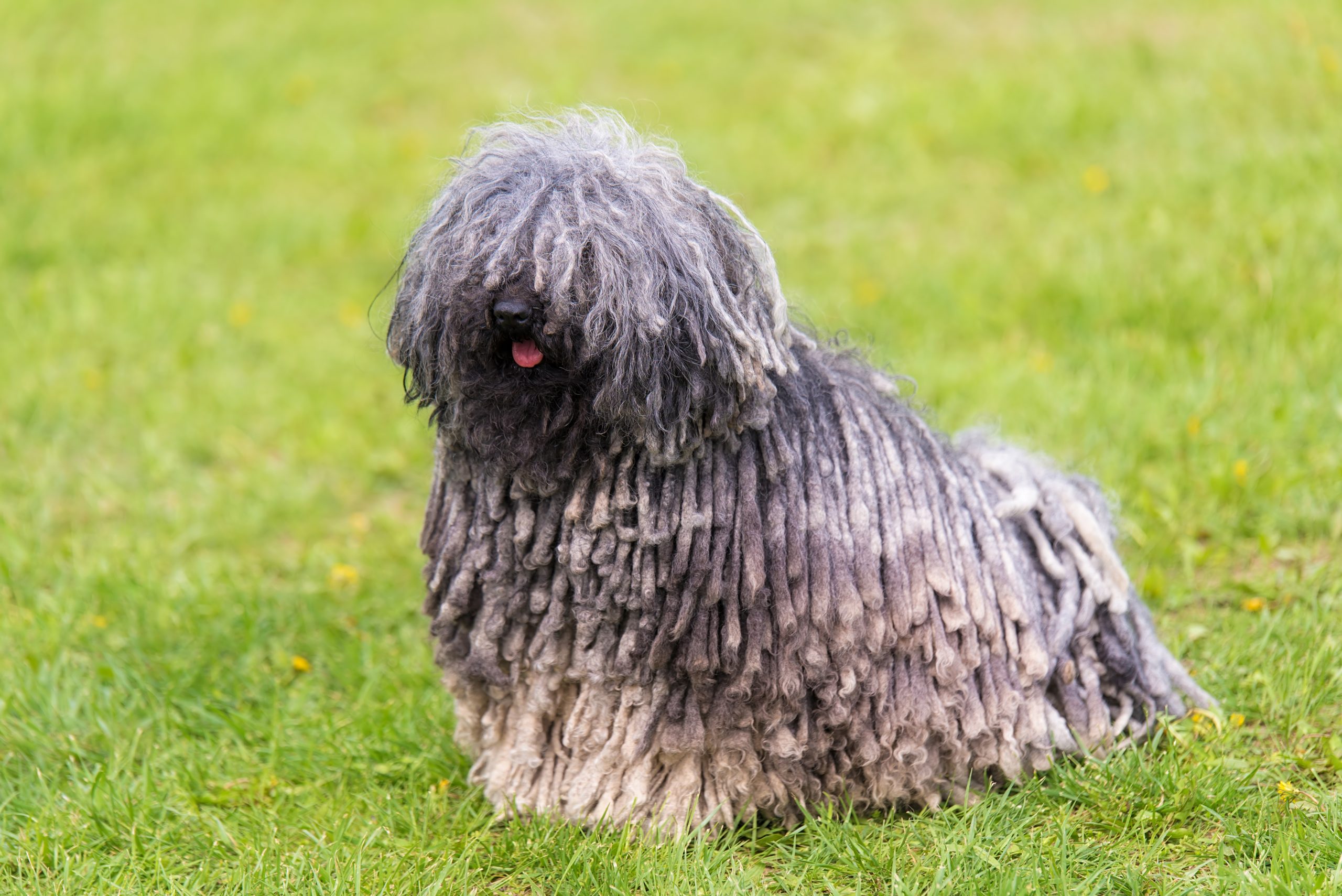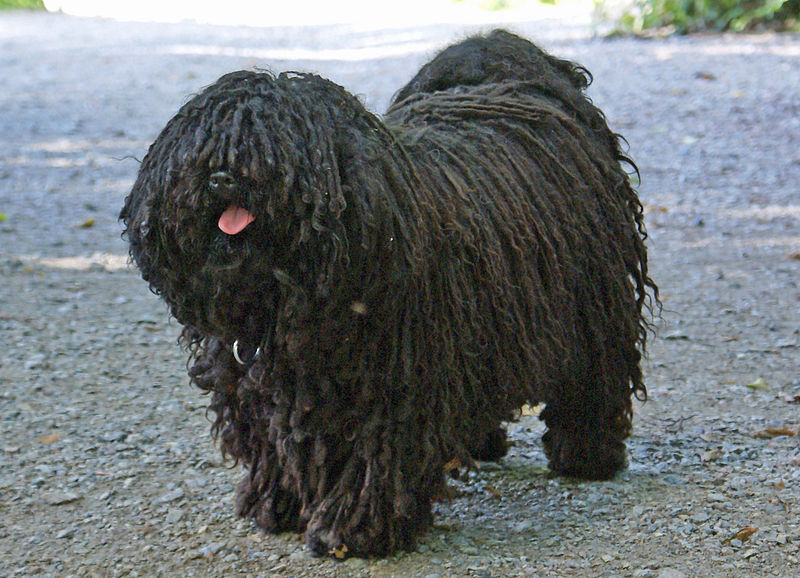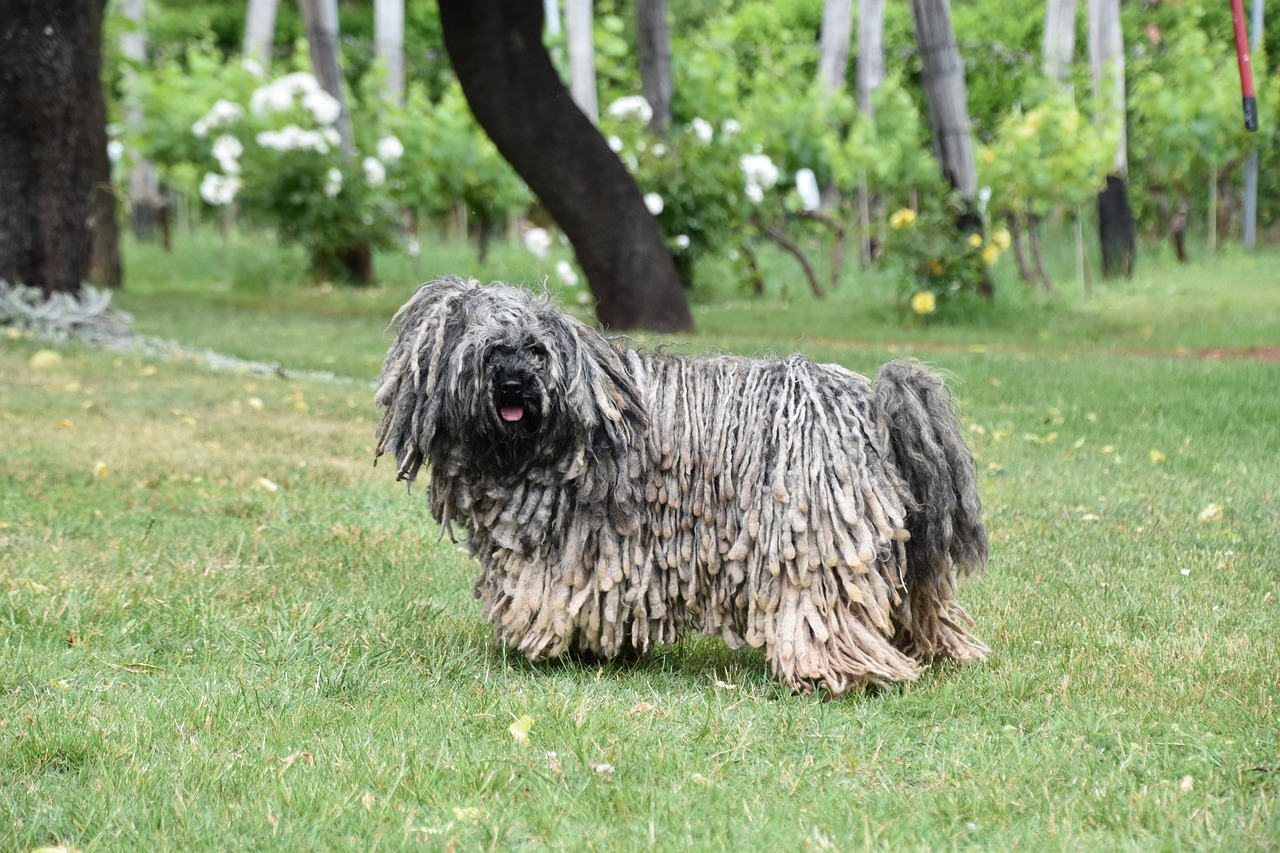Puli
No products found which match your selection.
Shelter Dog Meal Donation Count:
No products found which match your selection.
The Puli is a distinctive and charismatic breed, known for its unique corded coat and spirited personality. Highly intelligent and energetic, they make excellent companions for active individuals and families willing to engage in their care and training. Their loyalty and protective instincts also make them great watchdogs. While the grooming requirements for a Puli’s coat are significant, the joy and companionship they offer in return make the effort well worth it. For those seeking an active, intelligent, and loyal dog breed with a unique appearance, the Puli is an excellent choice.
The Puli is a highly intelligent and trainable breed. They excel in obedience, agility, and herding trials, showcasing their versatility and eagerness to please. Their high energy and playful nature make them a fun family pet.

The Puli’s history traces back over 1,000 years in Hungary, where they were treasured for their herding and guarding abilities. They were brought to Hungary by the Magyars, who valued them for their durable, weather-resistant coats and agile herding skills.




Pulik are generally healthy, but like all breeds, they're prone to certain health conditions such as hip dysplasia and eye disorders. Regular veterinary check-ups are essential to maintain their health.
The most distinctive aspect of the Puli is its corded coat, which requires extensive grooming. The cords must be separated regularly to prevent matting and skin issues.
This breed requires daily exercise to maintain its physical and mental well-being. Activities like long walks, playtime in the yard, or agility training are ideal.
The Puli is highly trainable but can be stubborn. Consistent, positive reinforcement methods work best. Early socialization and obedience training are recommended.
A balanced diet suited to their age, size, and activity level is crucial. High-quality dog food, whether commercially manufactured or home-prepared with your veterinarian's supervision, is vital.
The Puli is a unique and delightful breed, perfect for active owners who can meet their exercise, training, and grooming needs. Their distinctive appearance and playful nature make them a beloved companion in homes around the world.
The Puli, like any breed, is prone to certain health conditions. While most Pulik are healthy, potential owners and breeders need to be aware of these common issues. Regular veterinary check-ups and proactive health management can ensure a Puli lives a healthy, happy life. Here are some common health issues and recommended tests for the Puli breed:
It's important to note that responsible breeders will screen their breeding dogs for these conditions to reduce the likelihood of them being passed on to offspring. If you're considering adopting a Puli, inquire with the breeder or rescue organization about the health screenings and veterinary care the dogs have received.
The iHeartDogs Free Rx Discount Card Program is a pet prescription discount card that can help you save money on your furry friend’s medications. The card is free to sign up for, and you can use it at participating pharmacies nationwide. To use the free program, simply show the card to your pharmacist when you pick up your pet’s prescription. The pharmacist will then scan the card, and you will receive a discount on the price of the medication.LEARN MORE
The annual cost of caring for a Puli can vary depending on various factors such as your location, the dog’s age and health, and your personal preferences for care. However, I can provide a general breakdown of the typical expenses associated with owning a Puli. Remember, these costs can fluctuate based on the quality of products and services you choose.
Total Estimated Annual Cost:
$2700 - $6500
It's important to note that these figures are estimates and can vary. Also, the first year of owning a dog can be more expensive due to one-time costs like spaying/neutering, initial vaccinations, and training. Regular budgeting for your dog's needs and an emergency fund for unforeseen costs are essential for responsible pet ownership.